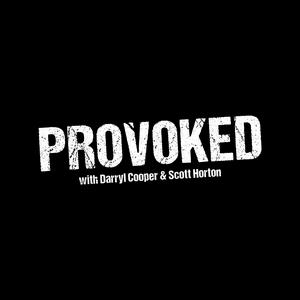EP:17 - LIVE : Deal or Deception? Peace or Just Politics? Inside the Israel–Hamas Deal
A “ceasefire” that still features explosions doesn’t deserve the name. Scott Horton, and guest host Kyle Anzalone dig into what’s actually happening in Gaza right now—why strikes continue, how Israeli forces are repositioning instead of leaving, and what the Lebanon “truce” teaches us about violations becoming a daily routine. From there, we trace the political chess behind the deal: Trump’s pressure on Netanyahu, Kushner’s handshake-first style, and the side understandings that let Israel snap back to war at the first alleged breach. Phase A promises hostages and more aid; Phase B whispers about withdrawal and reconstruction. The text is vague. The incentives are not.We map the tripwires that could unravel everything: a landscape seeded with unexploded ordnance, fragmented command across shattered neighborhoods, and continued occupation that heightens the chance of a single incident becoming pretext. Aid numbers sound big until you compare them to need—warehouses emptied, infrastructure erased, and malnutrition spreading. When institutions like schools, mosques, and hospitals are targeted, communities lose their anchors. The human cost isn’t just today’s body count; it’s the trauma curve of an entire generation: orphans, amputees who require surgeries as they grow, and children whose brains and futures are shaped by hunger and fear.We widen the lens to Iran, where deterrence dynamics after the 12-day exchange leave room for miscalculation. Claims about destroyed nuclear sites are overstated; the real question is whether Tehran rebuilds, leverages restraint, or gets painted into a corner. Then we pivot to Venezuela, where sanctions strangled the economy and fueled migration—and where Washington now flirts with escalation under a drug-war banner. Installing a friendly figurehead is not a strategy; it’s an ignition source. Even those who dislike Maduro will resist a foreign imposition, and any strike invites regional blowback, oil shocks, and a crisis that doesn’t stay within borders.Under it all runs a simple throughline: wars are driven by incentives. Politicians, lobbies, contractors, and media ecosystems gain from “flexible” ceasefires, permanent emergencies, and righteous strikes that never quite end. If we want real de-escalation, we have to insist on terms that can’t be gamed: open access for aid, verifiable withdrawals, clear red lines against collective punishment, and real accountability when they’re crossed. Subscribe, share this episode with a friend who follows foreign policy, and leave a review with your biggest question—what would it take to make a ceasefire mean cease fire?Support this podcast at — https://redcircle.com/provoked-with-darryl-cooper-and-scott-horton/donationsAdvertising Inquiries: https://redcircle.com/brandsPrivacy & Opt-Out: https://redcircle.com/privacy


